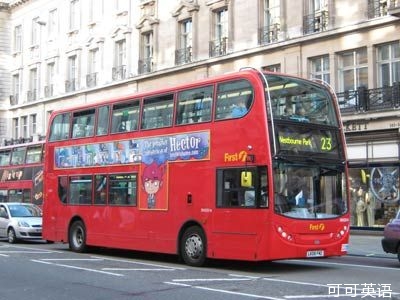(单词翻译:单击)

A bus company is warning drivers to not call passengers `babe` in a bid to avoid lawsuits from offended women.
英国一家公交公司提醒司机,不要称呼乘客“亲”,以防认为受辱的女性起诉。
Brighton & Hove Buses posted warnings to drivers in its head offices after a complaint from a woman who said she felt insulted by being called `babe` when she boarded a bus。
布赖顿和霍夫公交公司总部近日贴出了这则警告通知。事情的起因是公司接到一名女乘客投诉,称某次上车时,司机称呼她“亲”,她当时感觉受到了侮辱。
The company also warned drivers they could face the sack if they call passengers `love` or `darling`。
该公司还警告司机,如果对女乘客使用“亲”这类词汇,司机将面临被炒鱿鱼的风险。
One employee, who did not want to be named, said: `It`s just the height of political correctness. The drivers know how to best speak to customers。
一名不愿意透露姓名的司机说:“这样做实在是‘过头了’。司机们知道该怎么称呼乘客最好。”
`People don`t want their drivers to be robots. What is the world coming to when you can`t have a bit of friendly banter with passengers?`
“人们不会希望司机都像机器人一样。如果和乘客之间不能说笑,世界将会变得多么冷冰冰啊。”
The sign reads: `Please can drivers be aware that some of our customers may take offence at having terms such as "love", "darling" and "babe" directed towards them。
通知写道:“请司机注意,有些乘客认为被直呼‘亲爱的’、‘宝贝’、‘亲’是受到了侮辱。”
`This can be seen by some as being a sexist comment, as a recent complaint has highlighted.`
“这对有些人来说有性意味,就像最近的一起投诉提到的那样。”
Managing director Roger French said: `A lady complained to us that she thought the language used by a driver was demeaning to her。
总经理罗杰·弗兰齐说:“有位女士向我们投诉,她认为司机使用这样的语言对她是种侮辱。”
`We take a lot of customer feedback so we thought we would pass this on. The drivers will understand and take it in good spirit.`
“我们接到了很多顾客反馈,所以我们觉得应该这样做。司机们会理解,并且愉快地接受。”


